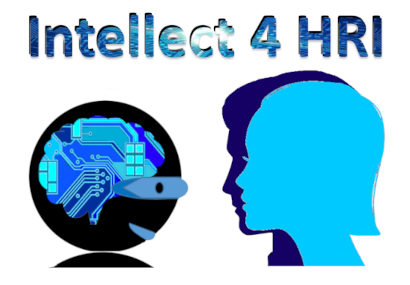Panel Discussion Questions
Each panel session will have 40 minutes where there is time to answer 5 questions by the speakers of our workshop. Their responses will be approximately 2 minutes or less. In addition, in each panel session there is time remaining so that we can give the word to the attendees, so that they can also answer these questions, in case that some attendees want to answer.
Also, we have included two more additional questions in case there is some remaining time.
- Multiple different interactions (also related to short-general and long-customized interactions): How can robots achieve enough level of general behavior to be able to interact with multiple people but at the same time be able to deal with a “customized” interaction for the particularities of each person?
- More natural collaborative robot behaviors using learning or methods: How can we make robots perform more human-like collaborative behaviors using learning or other methods? (These behaviors can include physical and communicative interactions)
- One very related to machine learning: What areas of robotics do you think machine learning could have the most impact on the future? And what can be the biggest limitations of machine learning in those areas of robotics that have to be solved? (Example of possible limitation: deep learning does not extrapolate/generalize well outside the training data distribution; it currently requires a lot of training data).
- [Controversial/science fiction question.]Answer Option1: Do you think the AI used for robots can evolve in a way that robots will be more capable and take over complex jobs in the real world that require social interaction? Will this lead us to a utopia, or will it cause many problems as many people lose their jobs? Will we also need the Asimov rules or something similar? In addition, how do you envision that this evolution can happen? Answer Option 2: Alternatively, if you prefer, in a more realistic way. Which can be the most advanced capabilities that these robots will achieve due to the evolution of AI? In addition, how do you envision that this evolution can happen?
- Ensure our volunteers’ physical security and data privacy: How can we ensure that our volunteers in our experiments are not afraid of physical danger and data privacy? Considering that our research is more prototypes than robust products, but we use it to test them with normal users unfamiliar with robots. Then, our impact on society is high.
(If there is much remaining time. I think that no... but just in case...)
- Optional question1: Which type of capabilities will robots need in terms of perception and social awareness to interpret our interaction and our different situations well?
- Optional question2: The idea of a robot that can adapt to my needs or my preferences, a real companion or partner, is very interesting to me. Do you think this fact will be possible in the future using learning or other methods, and which steps will we need to achieve this situation?
|


